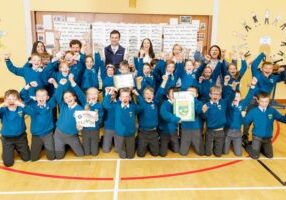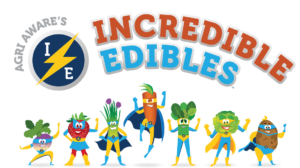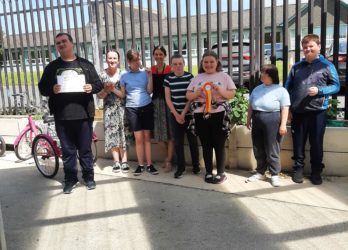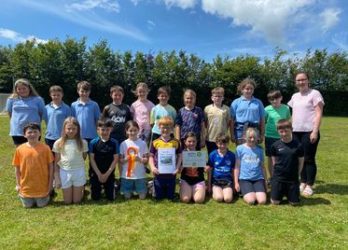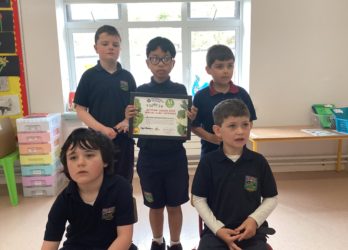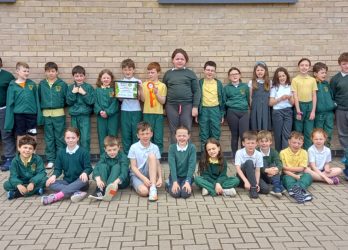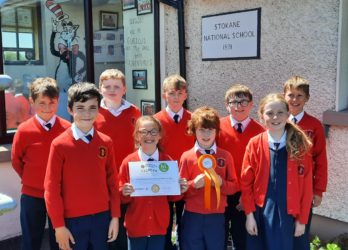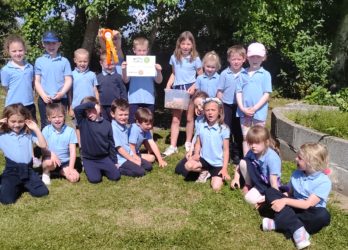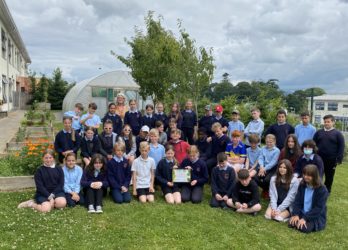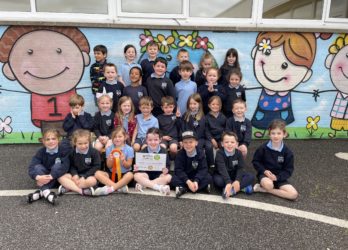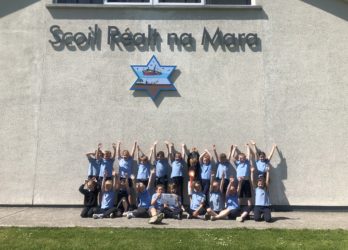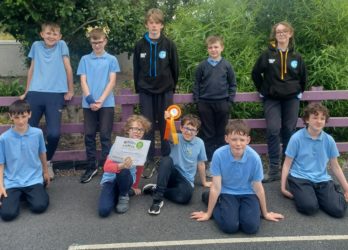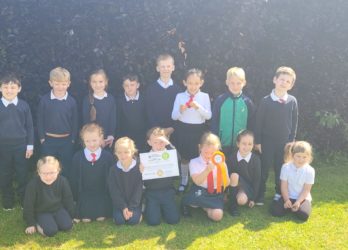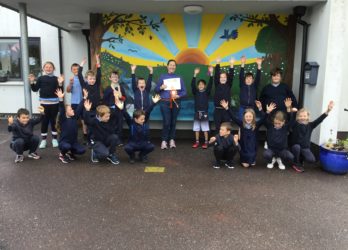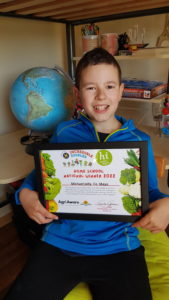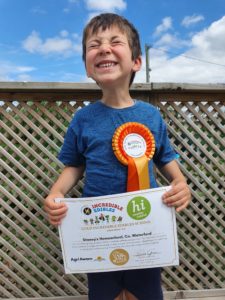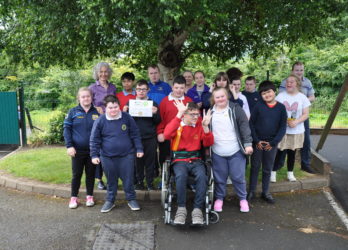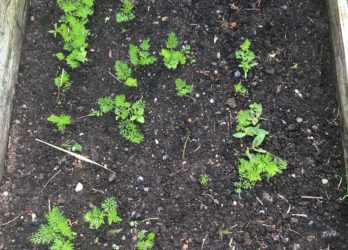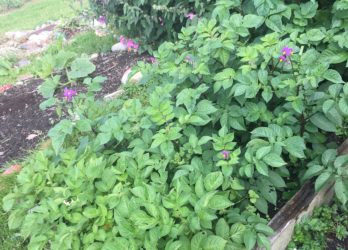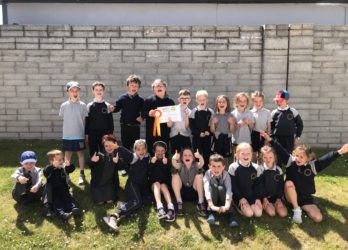Incredible Edibles for Schools:
Award Winning Health Eating Project
Incredible Edibles is an award winning healthy eating and growing programme. This hands-on SESE linked programme can strengthen geography, science and maths learning while giving pupils the tools needed to make better food choices.
Participating schools are sent free grow packs that contain seeds to grow strawberries, potatoes, lettuce, spinach, chives, carrots and turnips, as well as other materials to help them get started growing!
Schools are asked to evidence of the completion of tasks to be recognised nationally as a healthy eating school and to be in with a chance to win some brilliant prizes.
Please only fill out this form once. If any of your details have changed or you are unsure, please feel free to call us on 01 460 1103 or email: office@agriaware.ie
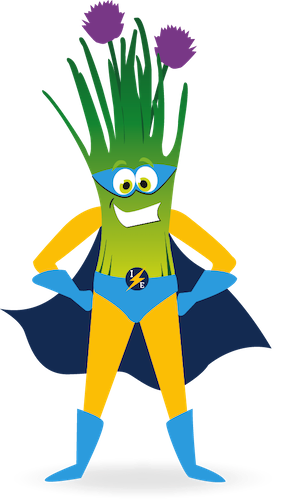
Getting Started & Preparation
Incredible Edibles is a curriculum linked healthy eating and growing initiative for primary school students. It encourages schools across the country to get busy sowing, growing, cooking and eating fruit, vegetables and herbs through a hands-on and engaging learning experience.
The aim of the project is simple:
- Educate students about growing fruit and vegetables.
- Increase awareness of food origin, identifying and supporting Irish grown produce, while looking after the environment.
- Highlight the importance of consuming 5-7 fruit and vegetables daily for a healthy balanced diet.
Incredible Edibles Logbook
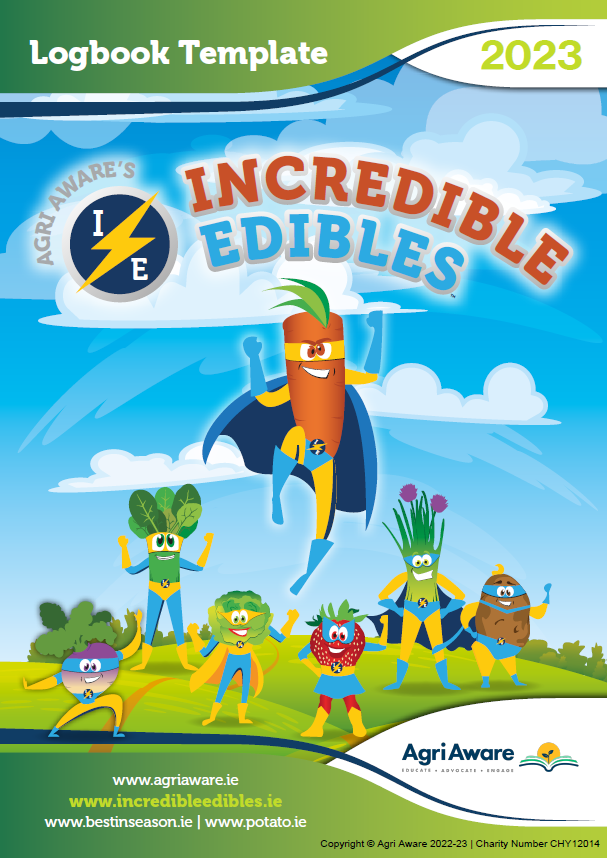
Download your FREE logbook which will enable you and your class to complete and track your progress.
In the Classroom
In the Garden
5 Exciting Programme Tasks
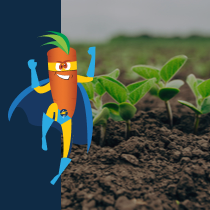

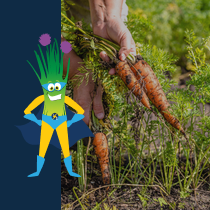
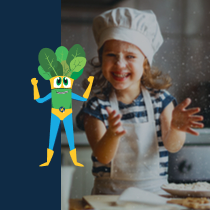
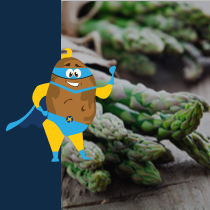
Task-1: Learn about Food Origin
This task is aimed to get you and your pupils thinking of where food your food comes from.
There are a multitude of people behind the process of providing fresh, high quality and affordable food for us to eat every day and different foods have different growing processes and origins.
Here are some ideas and tips to learn about food origin:
- Trace your food from fork to farm
- Visit a local grower or Invite a local grower into your class
- Zoom a Farmer! Agri Aware's Farming Through the Seasons can help.
- Research what food products Ireland produces.
- Discover what kind of crops are grown in your county - from Wexford Strawberries to Monaghan Mushrooms!
- Identify types of food items and if they are grown on trees, plants, vines, bushes or underground.
- Assign one of our worksheets as a homework task
- You could make a mini project around it - Make a list of 20 food items in class (or use what's in your lunchbox!) and trace them back to the farm. What did they look like before they were sold in the shop? Ex: picture of cheese - which comes from a cow. Picture of bread - which comes from grain
- Take some pictures from your fridges/cupboards and guess if they came from a factory (processed) or from the farm!
- Cut out labels from food at home - stick the labels to a picture of the world map depending on their country of origin and see how far away they have travelled!
- Pick a food item and get the students to explore the steps taken to bring it from farm to fork. Do they grow on trees, on bushes, underground (root vegetables) or above ground? They can make a poster, write a story or take photos of the food at each stage of the process
Teacher Resources:
Junior (Montessori - 1st Class):
Senior (2nd - 6th Class):
All Levels:
Task-2: Identifying Irish
This task teaches pupils how to recognise Irish produce and to understand why we may or may not be able to grow certain foods that we know and love.
This task explores the only official stamp of approval for foods produced in Ireland - the Bord Bia Quality Assurance Mark, as well as topics such as seasonality and climates.
Here are some learning ideas on how you may complete Task 2 during this time:
- Use the Task 2 questions in the Incredible Edibles logbook to help your students when identifying food items in their homes.
- You could reinforce the learning of this mark by completing our colouring worksheet "Colour in the Bord Bia Quality Assurance Mark"
- They could also take a picture of ones that are not Irish and try to describe why - ex: "my bananas are imported from the Dominican Republic. We cannot grow bananas in Ireland as it is too cold".
- You could discuss seasonality and the different climates that allow certain food to grow.
- Have students complete the fun "Bingo" activity as a homework assignment. If they have the fruit and veg at home - mark bingo!
- Discuss why Ireland is known for potatoes - try out the "History - Irish Potato Famine" worksheet to learn more!
- Match the food labels to the map - print a map of the world and stick the food labels onto their country of origin - see how far your food has traveled!
- Think about why food labelling is important - particularly food origin. Big vocabulary words to explore here could be: Traceability, Quality, Affordability, Sustainability, Locality and Community.
Junior (Montessori - 1st Class):
Senior (2nd - 6th Class):
All Levels:
Task-3: Growing
Grow packs will be delivered to schools in late February and early March.
Plants need some care and attention to allow them to grow best. Some simple things that plants need to grow are sunshine, water, air and soil. Check out your logbook for more on these four elements that are key to growing a healthy array of 7 a day!
Please make sure to download your growing instructions leaflet available here.
Use the Task 3 sections in the Incredible Edibles logbook to help you start the conversation with your students when sowing and growing.
Some important themes and vocabulary terms include: soils, sustainability, composting and biodiversity!
Check out pages 6 and 7 of the logbook for more information on biodiversity and the importance of pollinators to grow food!!
Task Ideas:
-
- Check out our Soils and Plants PowerPoints on the Science section of our website, to get this conversation started within the classroom!
-
- We also have a fun photosynthesis worksheet/experiment to try out too!
-
- The easiest thing you can do in your own garden to help improve your soil is to introduce earthworms and practice composting. Earthworms help to move the soil around underground which allows for more air and water to access plant roots. Earthworms also breakdown organic material found in the soil which helps add extra nutrients for the plants to grow better.
-
- You can read all about composting in Task 3 of your logbook. Why not try out our make your own wormery worksheet.
-
- Before planting, map out where you will plant your vegetables and leave a wild space for pollinators.
-
- You could make signs to protect the bees in this area, leave a small dish of water for the butterflies, make a bird feeder or even a bug hotel.
Junior (Montessori - 1st Class):
Senior (2nd - 6th Class):
All Levels:
Task-4: Preparing and Cooking - Life Skills
Now that your seeds have been sown and are growing in the garden, it is time to explore the kitchen! The majority of food that we eat is prepared in the kitchen, so it is so important to explore how such food goes from its natural source to a delicious meal - ready to eat.
The best way to do this is to involve the pupils both at home and in school. By giving pupils even one job, washing or helping to put the ingredients into bowls etc, it can spark their interest and create buy-in from them. If they are actively involved, they will naturally want to see what the result is.
If your school has few facilities, simple recipes, such as fruit skewers and smoothies can be created with ease.
If you do have more facilities, you could try out our Paddy Potato Cakes recipe.
A large part of this task is to not only complete it in school but encourage pupils to get involved in the kitchen at home too! We want to bring these healthy habits home and encourage cooking in the kitchen as a life skill.
Don't forget to check in on your plants!
Make sure they are getting enough water, sunlight and (if needed - especially your root vegetables such as potatoes), top up your soil. You should see your seedlings pop up soon (if not already).
Take some progress photos and remember not to over-water them your plants.
Junior (Montessori - 1st Class):
Senior (2nd - 6th Class):
All Levels:
Task-5: Healthy Eating Week
Now that you have made your delicious healthy meals and recipes for Task 4 - Preparing & Cooking, it's time to complete Task 5: Healthy Eating.
A good place to start (and to fulfil this task), is to download and photocopy the Incredible Edibles Healthy Eating Chart.
Have your students record the potatoes, fruit and vegetables they eat at school and at home over a week.
While you have started with your diaries, why not take a look at the Food Pyramid PowerPoint on our website and discover topics such as:
-
- Take on the 7 a day for 7 days challenge! Again, this is encouraging healthy habits at home and at school
-
- Explore the Food Groups
-
- Portion recommendations
-
- Match the food to the food groups
-
- Serving size guide
-
- Activities - Food Group Bingo
-
- You could also learn all about the benefits of eating the 7 Incredible Edibles on our Meet the Heroes section! From Cian Carrot, to Saoirse Strawberry - pick and discuss your favourite and why!
-
- Another topic and activity you could explore and discuss is eating the rainbow. Eating a variety of fruit & vegetables that are different colours will add a variety of nutrients to your diet!
Did you know? Rich, deep colours tend to provide more nutritional value. Why not check out our Eat the Rainbow Chart and list what colours/how many of each you eat in a day!
Junior (Montessori - 1st Class):
Senior (2nd - 6th Class):
All Levels:
School Status Awards and Special Prizes

School Status Awards
All schools who participate in our Incredible Edibles programme that submit a logbook, will be recognised nationally as an Incredible Edibles - Healthy Eating School.
Based on a set of guidelines, submitted logbooks will be awarded Bronze, Silver, or Gold Level Status. We will also post these awarding's on our Incredible Edibles website and Agri Aware social media channels, as well as publish these celebrations in the INTO magazine circular and website.
-
- Bronze - Complete 1 or 2 out of 5 tasks - Certificate for Class / School
-
- Silver - Complete 3 or 4 out of 5 tasks - Certificate for Class / School
-
- Gold - Complete 5 out of 5 tasks - Certificate and Gold Rosette for Class / School
Overall Winners
1st prize - VIP class trip* to a farm near you & a growing tool kit to the value of €500
2nd prize - VIP class trip* to a farm near you & a growing tool kit to the value of €300
3rd prize - a growing tool kit to the value of €300
Best Junior Project - a growing tool kit to the value of €300
Best Home School Submission - a growing tool kit to the value of €150
Best Gaelscoil Submission - a growing tool kit to the value of €150
Best Special School Submission - a growing tool kit to the value of €150
If you submit all 5 tasks by the end of the project date, you will be in with a chance to win one of the prize categories listed above.
*Trip location subject to change depending on the location of winning schools! Trip location examples: National Botanical Gardens, Country Crest, The Lidl Farm to Fork Experience, Agri Aware Mobile Farm visit and more!
How to Submit
If you are submitting your logbook by post, include a prepaid envelope with your logbook if you would like it to be returned after it has been reviewed.
Address: Agri Aware,
2nd Floor, The Irish Farm Centre,
Old Naas Road,
Bluebell, Dublin 12,
D12 YXW5
If you are submitting online, please upload one file as a PDF.
Canva is a very useful tool that can aid you in the creation of an online submission.
If you have prepared your submission in PowerPoint format, please convert to a PDF before submitting.
If you have prepared your submission in Word Document, please convert to a PDF before submitting.
Take a look at some of our Incredible Edible Schools below
